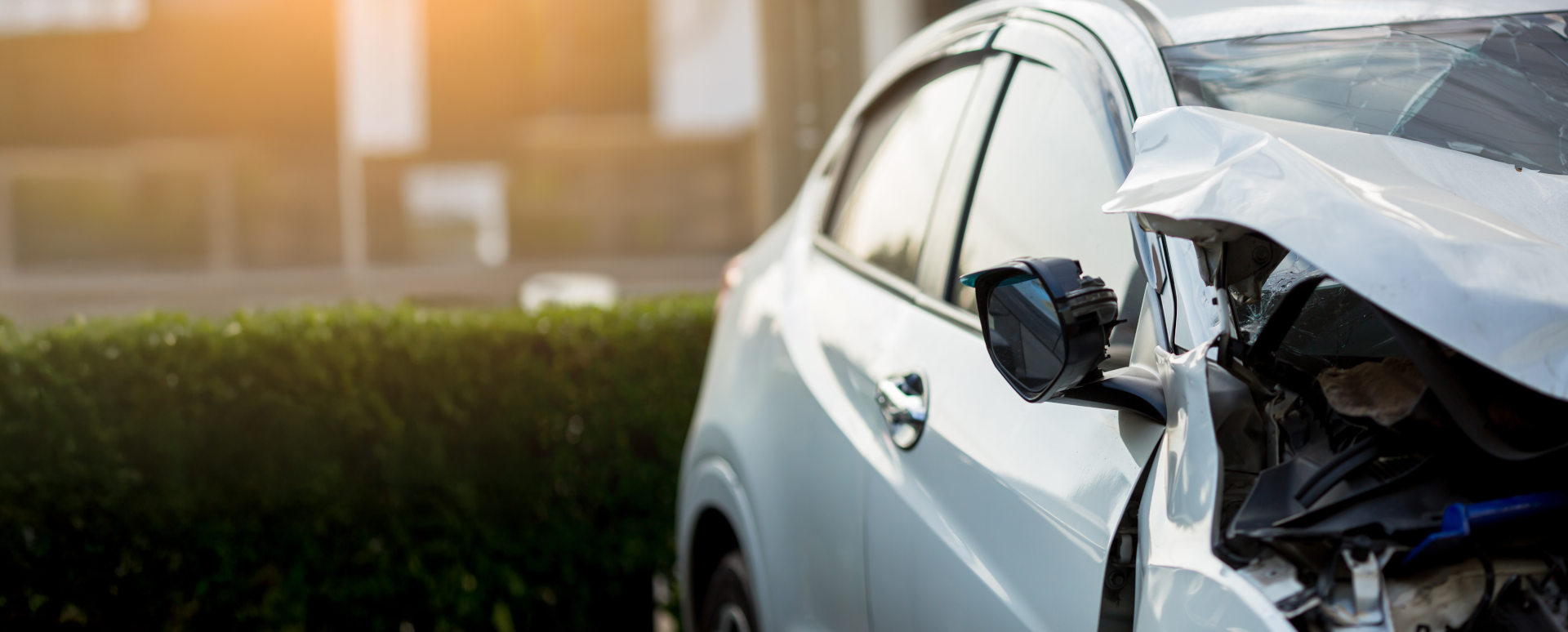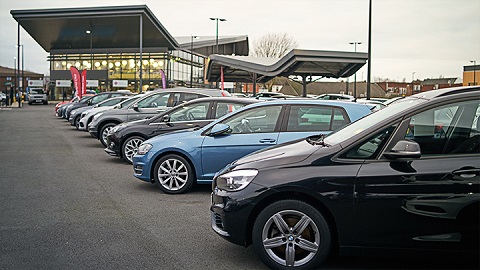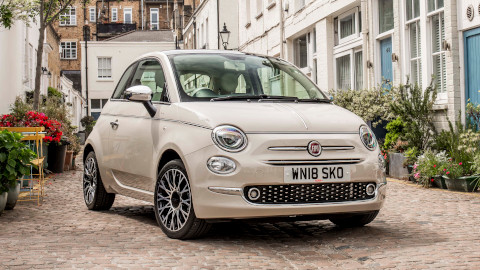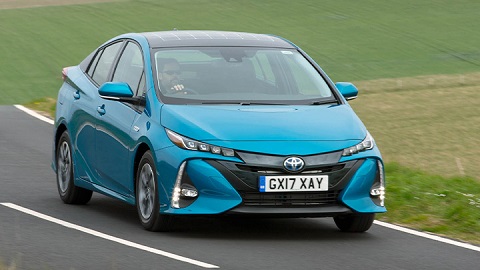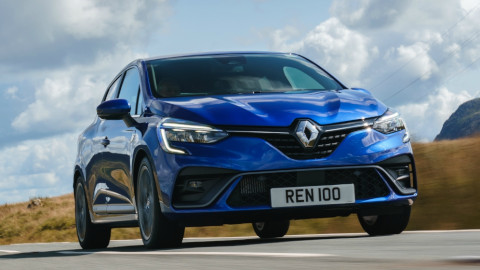If you've been browsing used cars, chances are you've stumbled across adverts that mention 'Cat N'. Put simply, the term means 'Category N', and it refers to cars that have been written off by insurers due to non-structural damage.
At first glance, these types of cars may seem concerning, as any reference to accident damage is bound to raise red flags.
But, before ruling out a Cat N car, it's worth taking a little time to understand exactly what the term means, how it affects ownership, and whether it's worth buying one. Read on to discover everything you need to know about Cat N vehicles.
- What is a Cat N car?
- Does Cat N affect insurance?
- Does a Cat N car need a new MOT?
- Should I buy a Cat N car?
- How to check if a car is Cat N
- Frequently asked questions
What is a Cat N car?
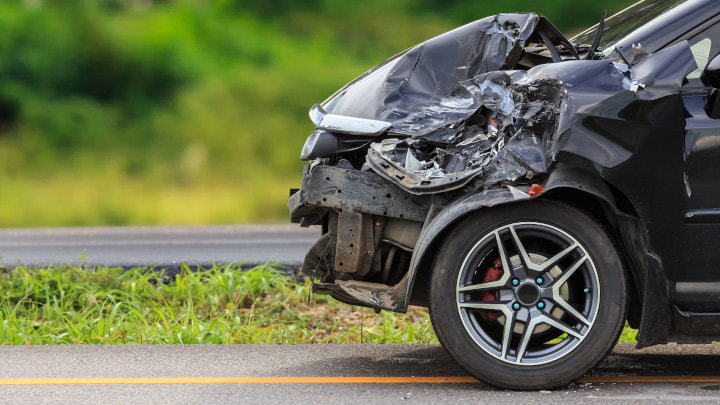
Cat N, or Category N is one of the four insurance write-off categories used in the UK. The 'N' stands for non-structural, and a car is given this label when it’s been damaged badly enough for the insurer to pay out the claim, but the damage isn’t to the main structural parts of the car.
The damage that pushed the car into this category could be body panels, electrics, brakes, interior parts, or anything else that doesn’t compromise the foundation of the car.
The important thing to know is that Cat N doesn’t mean the car is unsafe by default. Once repaired, it can be driven like any other car. The Cat N label simply means it’s had a past incident that was costly enough for the insurer to write it off.
Does Cat N affect insurance?
Some insurers are perfectly happy to cover Cat N vehicles, while others won’t touch them at all. Those that do offer cover may charge slightly higher insurance premiums because of the car’s accident history, or they might put certain conditions in place.
The important thing to remember is that you must declare the Cat N status when arranging cover. Even if the car looks brand new and drives perfectly, insurers still need to know about its history. If you don’t declare it and later need to make a claim, your insurance could be invalid, leaving you out of pocket.
The best approach is to shop around, as different insurers have different attitudes towards Cat N cars, and some may barely increase the premium compared to a standard car. It’s also worth checking comparison sites and then speaking directly to insurers, as sometimes you’ll get a clearer picture that way. If you go into the buying process knowing roughly what the insurance will cost, you’re less likely to face surprises down the line.
Does a Cat N car need a new MOT?

A Cat N write-off doesn’t automatically need a new MOT before it goes back on the road. The MOT test is designed to check the basics of roadworthiness, such as brakes, tyres, suspension, emissions and lights. It doesn’t look at accident damage specifically, and it won’t confirm whether repairs have been carried out to a high standard.
For that reason, many sellers put a Cat N car through a fresh MOT before advertising it. While this can give buyers some reassurance, it isn’t a guarantee of quality. A car might pass its MOT even if the repair work was rushed or done on the cheap, because the test simply doesn’t cover those areas.
Should I buy a Cat N car?
So, now you know what Cat N means, you may be wondering whether buying one is right for you, and the answer really depends on your circumstances.
Cat N cars are usually cheaper than identical models without that label, sometimes by a large amount. That makes them tempting if you’re on a budget or looking for the best value. If you plan to keep the car for years, saving on the purchase price might make perfect sense.
The trade-off is that Cat N vehicles don’t hold their value in the same way as cars with a clean history. Even if the repairs were carried out to a high standard, many buyers remain cautious and some won’t consider them at all. When the time comes to sell your car, you’ll usually need to accept a lower price than you would for a non-Cat vehicle.
There’s also the question of peace of mind. Some drivers don’t mind owning a car that’s been in an accident if it’s safe, roadworthy and represents good value, but others would rather pay extra for a vehicle with a completely clean history. Neither approach is wrong; it’s about what matters to you as a buyer.
If you’re willing to do your homework, check the paperwork carefully, and accept the lower resale value, a Cat N car can be a good way to get more for your money. But if you want the simplest, most straightforward option with no history to worry about, you may find that paying a bit extra for a non-Cat car is worth it in the long run.
How to check if a car is Cat N

When you’re looking at a used car, it’s important to know whether it has ever been written off. A seller should be upfront about this, but it’s not something you should take on trust alone.
The most reliable way to check is through a vehicle history check, which accesses insurance and other official databases to confirm whether a car has been declared a write-off and which category it falls into. A history check can also flag other important information, such as whether the car has outstanding finance, has been stolen, or has been scrapped.
While these checks usually cost a small fee, they provide peace of mind by giving a clear picture of the car’s past. Running a history check is especially important if you’re buying from a private seller or at auction, where the full history might not be immediately obvious.
Frequently Asked Questions
You must declare if a car has Cat N status when arranging insurance. Even if it seems fully repaired, failing to disclose this history could invalidate your policy and leave you without cover in the event of a claim.
Cat N status is not shown on the logbook (V5C). The logbook only includes basic vehicle information such as the registered keeper, engine size, and colour, so a history check is needed to confirm any write-off status.
The V5C does not display Cat N or any other write-off information. To see whether a car has been written off, you need to use a vehicle history check that accesses official insurance records.
A Cat N car can be driven legally as long as it has been repaired properly, holds a valid MOT, and is insured. The Cat N designation simply reflects the car’s history and does not automatically mean it is unsafe to drive.
Find your perfect used car at Evans Halshaw
When it comes to Cat N cars, understanding the history and condition of the vehicle is key. While they can offer good value, it’s important to check the repairs, ensure the car is roadworthy, and be aware of insurance implications.
At Evans Halshaw, though we don’t stock Cat N cars, every used vehicle we do offer goes through a comprehensive 123-point inspection, giving you extra reassurance before you buy. Our selection includes a wide range of affordable value cars, so whether you’re looking for a practical first car or something more long-term, there are plenty of used options to browse through.
For more tips on buying used cars and getting the best value, you can explore our blog section, which is home to a wide range of buying guides.

